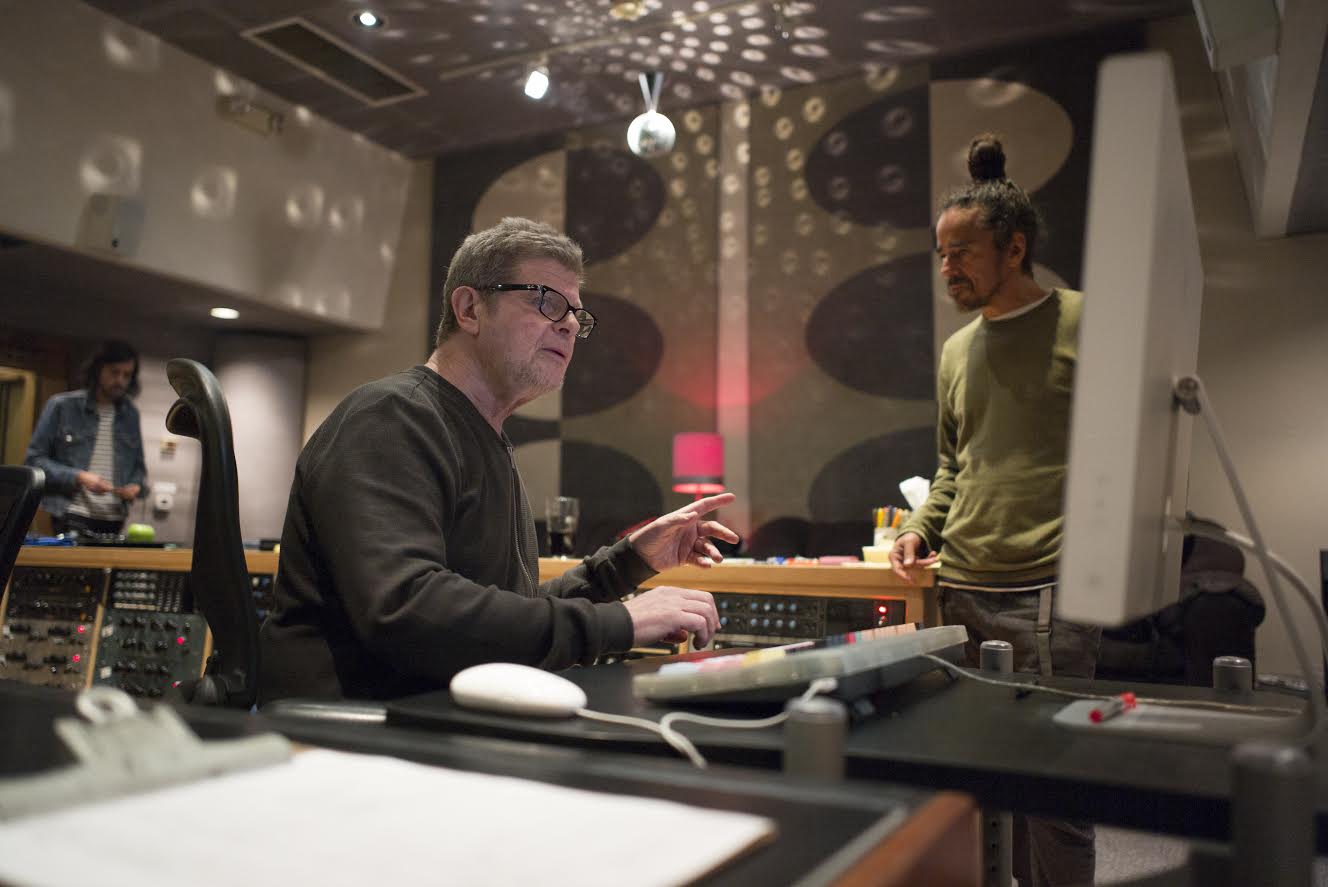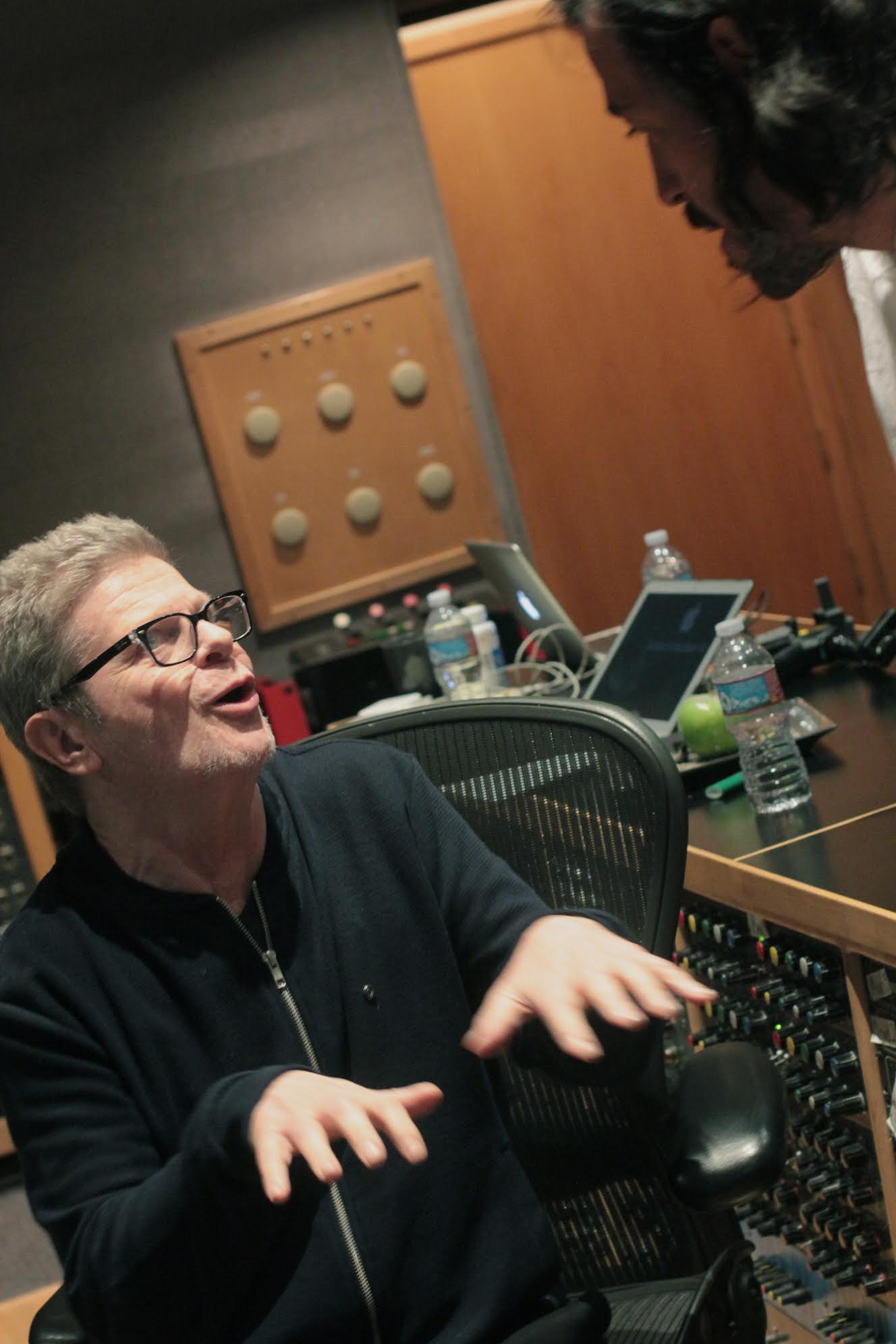Without longtime collaborator Gustavo Santaolalla, Café Tacvba’s oeuvre would not be what it is. The veteran producer has been essential to the band’s sound ever since their first collaboration, Cafeta’s 1992 self-titled debut album. Their talent has evolved side by side, with Santaolalla taking the role of a fifth Beatle, bringing out the best in both artists.
Fitting the band’s eclecticism, Santaolalla has cultivated a multifaceted production style ever since his teen years. His first forays into composition came in the late 1960s with the formation of Arco Iris, a pioneering Argentine rock band, as well as his subsequent project Soluna. In the 80s, Santaolalla took an increasingly important role in the rock en tu idioma movement, including collaborations with artists like Julieta Venegas, Divididos, Fobia, and Los Prisioneros, as well as pop superstar Juanes. He won two Academy Awards for his work on the scores of Brokeback Mountain and Babel, and helped compose the music for widely celebrated films like Amores Perros, The Motorcycle Diaries and Biutiful. In 2002, he founded neo-tango collective Bajofondo, which has been credited with reinvigorating the Argentine music tradition.

On the eve of the release of Cafeta’s new album Jei Beibi, we spoke with Santaolalla about the lessons he’s learned with Tacvba, and why this album marks a new phase in the band’s career.
What is it like to work with Café Tacvba after so many years?
For me, it’s always a joy to work with Café Tacvba, since I not only have an artistic relationship with them that spans more than 20 years, I also have a great friendship with them. Since all of us are always very busy, the only time we get to spend together is when we’re working on an album. It’s always very emotional for me, because there’s this artistic gratification that comes from working with them – they never seize to amaze me. Their ability for reinvention, without losing their identity…they always [remain] Café Tacvba. It’s all about pushing the limit and getting away from our comfort zone. It’s something we share; I’ve always loved diversity and that’s what makes us understand each other. When we join forces we always come out with something greater than the sum of our parts, I think.
“They’re not just a great Mexican or Latin American band; they’re on par with U2, Radiohead, whoever.”
There’s this artistic exchange between both parties. This relationship goes beyond working with each of the members of the band to come together as a unit.
I feel like I’m part of that unit, myself. I don’t play onstage with them – that’s not my job – but I feel I’m an integral part of their sound.
How early do you come in during the recording process?
Since they begin writing. There’s an initial batch of songs where feel like we have what we need, but there’s times when it’s my job to push them to do more. In fact, a song like “Futuro” came really late in the album process, the very late stage. We had already selected the tracklist, and all of a sudden this song appeared and we had to include it.

So you have an idea of where the album is going.
Yes, and I also sometimes tell them what’s lacking. I see the big picture of the album and I can tell when a song of certain style is needed. Perhaps we need a high-energy song or something else. I also help select which songs go on the album and which get discarded. There have been songs that have been around for years, and most of the band members thought they shouldn’t be on the album. Then my judgment tells me that the song can contribute significantly to the album, and some of those songs have won Grammys, you know?
“The music we’re working on is music that is actually needed in the world.”
You still think of your work as albums, then?
Yes, the most direct form of communication is a single, but we all come from album culture. An album has the format of a book – books have chapters; a movie or play has different acts. The songs are important on their own, but we think of albums as a way of telling a story. We work hard on the album sequence.
Café Tacvba have always explored many sounds. What determines the tools you and the band will use on the album?
There’s a part of the actual composition that is very Tacvba; almost always, there’s a musical quest in them. Some of the songs are written as an encounter between very particular sounds. Other songs leave blank space for elements to be added in. I played lap steel and there’s a children’s band in “Celebración” or “Vaiven” with the marimba. These are elements that the song demanded; you could hear the marimbas even before we added them.
What I love about their music is the richness in timbre; it’s a very important element for them. Some bands are just happy with guitar, bass, and drums, but with Café Tacvba, you’ll find many more timbres, and I contribute to that.
What do you take away from working with Café Tacvba after 25 years?
I have always loved working with them, and perhaps it happens with every record I make with them, but I enjoyed this album a lot in particular. I loved our dynamic, the way we worked together. I think it’s the best sounding Café Tacvba album ever. I’m taking away a record that sounds extraordinary. It marks a new frontier for Tacvba.
Do you think the album will be an inspiration for other bands to explore different sonic directions?
I always expect that they’ll serve as an important reference for young people, bands, and artists who are interested in reaching the people – those who aren’t interested in taking the easiest way out, rather taking the road of their artistic vision. Perhaps that will yield music that people deem weird. I think that’s lacking. One of the things I love about working on a new Café Tacvba album is that the music we’re working on is music that is actually needed in the world. We need the originality this kind of music brings, so I hope it inspires more bands to make uncompromising music.
It’s something we need in music on a big scale.
Café Tacvba are one of the world’s greatest bands. They’re not just a great Mexican or Latin American band; they’re a world-class band – on par with U2, Radiohead, whoever.
Café Tacvba plays New York’s Terminal 5 on Thursday, April 20 with openers Buscabulla. Enter to win a pair of tickets to the show below:







